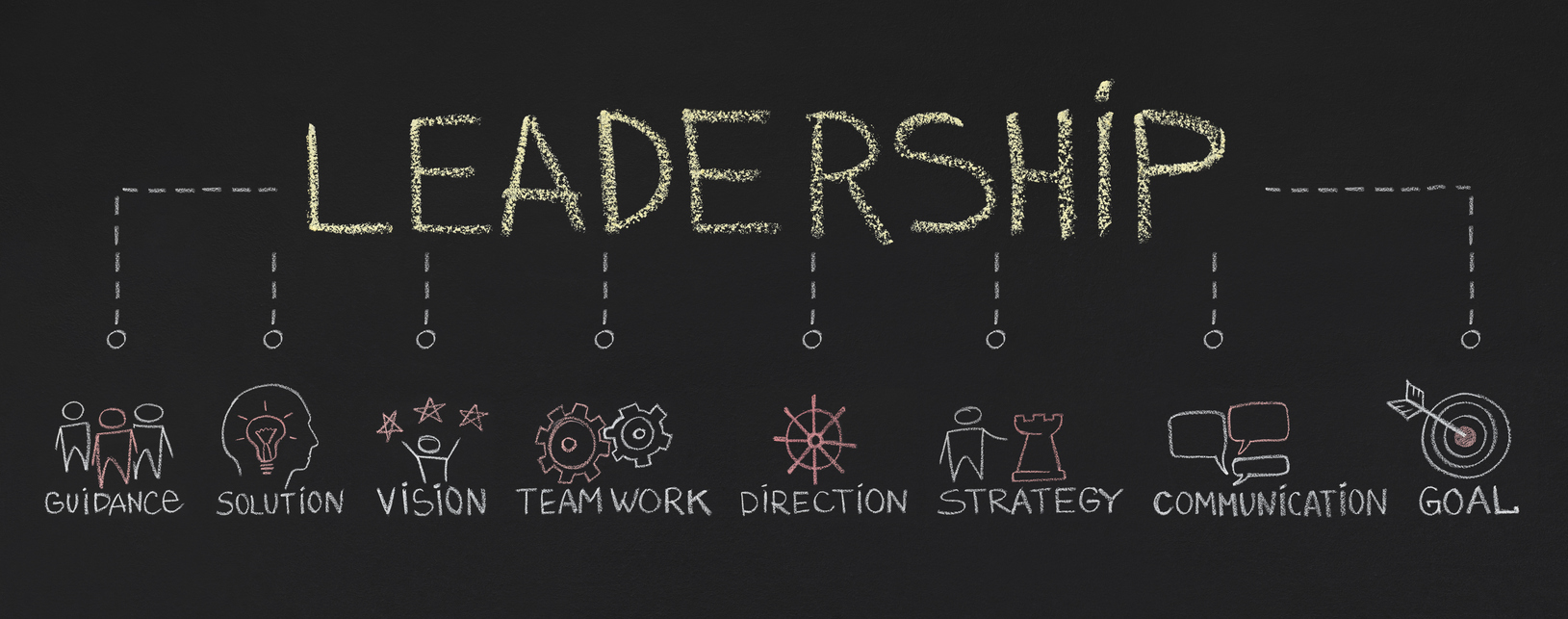TABLE OF CONTENTS
Over three-quarters of Americans believe that older business leaders aren’t willing to pass the torch on to younger or more diverse workers. The problem is that many of today’s leaders who are nearing retirement aren’t quite sure who should be next in line.
This stagnation is creating what some view as a leadership crisis or leadership gap. Many up-and-comers don’t feel ready or don’t seem ready to step into new roles. Leadership training programs can help.
How can leadership training programs support the emergence of new leaders? What role will a training program play in preparing high-quality upper level managers and CEOs? Read on to find out.
Building Confidence
If leaders don’t believe in their ability to lead, the chain of command falls apart quickly. Confidence is one of those hard (but not impossible)-to-teach skills that will support almost all other leadership skills. In a leadership training program, future leaders learn how to trust their ability to make decisions, think strategically, and manage their team.
Decision-Making Skills
Leaders are making decisions each and every day and without confidence, they’ll quickly fall into a state of decision fatigue. Decision fatigue not only slows down thinking but it can also cloud judgment, leading to unnecessary mistakes.
With leadership training, future leaders learn how to make internal decisions, like when to be firm and when to bend the rules or make exceptions. They’ll learn how to make choices about the structure of the company or the new products to sell. Strong decision-making skills keep the ship upright in good weather and bad.
Strategic Thinking
A strategic thinker is one who can tackle complex issues and recognize both the potential for failure and the opportunity for growth. It requires an eye for data and the ability to see past the numbers to set tiered, actionable goals.
This is one of the areas where many employees and managers struggle when the time comes to take on a larger role. When you’re always used to following orders, it’s difficult to be the one coming up with the plan. Leadership programs enable future leaders to recognize their ability to think strategically and learn how to employ those skills.
Team Management
Imagine a person one might call a “born leader” and think of the qualities they would possess to earn them that title. They’re probably great at commanding a room, spelling out the plan, and delegating tasks so everyone understands their role and value. Now imagine someone who has never had that opportunity suddenly being told that they’re team captain.
If the person in charge seems unsure of themselves or their approach to a certain project or issue, that uncertainty is going to trickle down. Leadership training programs don’t just teach people how to run a business. They teach people how to instill confidence in everyone below them.

Preparing for Future Challenges
A good leadership training program provides a dynamic framework for approaching different situations and conditions. After all, a strong leader never expects the conditions they work in to remain the same indefinitely. Here are just a few of the future challenges leadership training programs incorporate.
Economic Shifts
Only a lucky few get to take over their business in ideal economic weather. Currently, we’re living through an extended era of wondering if a recession is coming or if we’re already in one. Buying power feels low to a lot of consumers and investors are biting their nails.
A good leader knows how to handle the economic shifts they’ll work through, whether they’re in leadership for five years or 25. In a leadership training program, future leaders learn how to stretch a budget, hunker down in a downturn, and take calculated risks when the economy thrives.
Technological Growth
Baby Boomers have seen a profound amount of technological growth while Gen Z has lived in a high-tech society all their lives. Still, many businesses aren’t taking full advantage of advancing technology, as we’re seeing through the lens of AI.
Some leaders dig their heels in and assume things like AI are a passing trend while others assume new tech will be easy to incorporate. In business leadership courses, future leaders prepare for technological growth, including the importance in investing in tech training.
Shifting Expectations
One thing we’re seeing across industries is lower employee retention. Some research shows that new employees tend to show lower levels of engagement than tenured employees, and they’re more likely to find somewhere new to work.
A leader needs to recognize how employee expectations shift over the years and find creative ways to meet them. Some employees are looking for better benefits, more on-the-job training, or more flexibility. Leadership training programs focus on how to adapt to create a better work environment and positive workplace culture.
Fostering Communication Skills
We often see communication filed under the category of soft skills, leading to an influx of leaders who can’t communicate well. The reality is that a leader’s communication is just as important as their confidence levels. Here are some of the key factors that leadership training programs focus on when it comes to improving communication.
Emotional Intelligence
Emotional intelligence isn’t as simple as recognizing when you’re mad or when someone else is frustrated. True emotional intelligence helps leaders to manage their own emotions and honor the emotions of others. It means recognizing the impact your emotions can have on everyone around you.
Leaders with emotional intelligence can respond calmly in tense situations. They can show empathy when someone on their staff needs it most. In leadership training, future leaders can learn about this skill and put it to use in simulated scenarios.
Conflict Resolution
Everyone can think of a time in their life where they had a conflict with someone that never quite got resolved. Maybe they swept it under the rug and tried to ignore the tension in the relationship. Maybe the relationship dissolved because it couldn’t survive the lack of resolution.
When these kinds of issues enter into the workplace, workers expect higher ups to mediate a resolution. To do so, leaders need to know how to navigate a conflict without taking sides and work out compromises. The conflict resolution skills learned in leadership programs can make work environments safer for everyone.
Public Speaking
Well-rounded communication skills will always include a bent for public speaking. In any given week, a leader may need to address their employees, their investors, or even the public. When the goal is to instill trust (and it always is), charisma, tact, and clarity go a long way.
In other words, public speaking is where strong communication skills get a boost from confidence. Even leadership training programs that don’t address public speaking directly can make someone a better public speaker. When you feel confident in what you have to say and know how best to say it, you’ll have a lot more success addressing a room of listeners.
Cultivating Creativity
Teachers in grade school settings are always looking for ways to cultivate creativity in their students because it makes them better, more engaged learners. The push for creativity shouldn’t stop when we reach adulthood. Here are some of the ways that leadership training programs bring creative thinking back into the fold.
Adaptability
A lot of what we’ve covered so far points back to one skill in particular: adaptability. When you can adapt, you don’t have to live in fear of the changing tides, whether internal or external. You know how to take a calculated risk and deal with the consequences.
Adaptability is one of those qualities that can set leaders apart from other employees. Adaptability is a form of evolution. In leadership training programs, future leaders learn the value of evolving, how to recognize signs that evolution is necessary, and how to find new and creative solutions.
Innovation
What happens when you foster an environment where experience successfully meets new ideas? Innovation occurs. In a world that’s changing at a faster pace than ever before, innovation is what can keep your business ahead of the curve.
In leadership training programs, future leaders learn how to let great ideas (their own and others’) shine. This prepares them to make structural changes and create new products or services. Ultimately, innovation is the foundation of any resilient business.
Continuous Learning
In fostering creativity, business leadership programs teach future leaders an important lesson: never stop learning. When you practice and appreciate creativity, you’re always open to new ideas. You even start to seek out alternative methods and business models to learn what they’re about.
We need future leaders to commit to a life of learning to prevent some of the same sentiments we’re seeing today from coming back in 10, 20, or 30 years. When you embrace change, you aren’t afraid to bring a diverse group of potential leaders under your wing.

Encouraging Business Ethics
A look at corporate social responsibility statistics reveals that business ethics must be front and center. The vast majority of customers and employees both expect businesses to run on a strong value system. Here are some of the ethical areas that are encouraged through leadership training programs.
Integrity
Today’s consumers are starting to grow wary of practices like greenwashing. If you’re unfamiliar with the term, greenwashing refers to marketing that frames a business as environmentally friendly when they haven’t made any real sustainable efforts. Integrity, the art of doing the right thing even when no one is looking, is the antidote.
Leaders with integrity do right by their consumers, employees, and the wider world. When you move with integrity, you cultivate a workplace where honesty is valued and encouraged. Integrity is one of the pillars of business ethics that future leaders engage with in leadership training programs.
Inclusivity
Diversity is a key component of the modern workplace. Diversity brings people of all genders, races, ethnicities, and beliefs into an arena that once overlooked entire demographics. A good leader understands the importance of diversity, but more importantly, they try to create inclusivity.
In an inclusive environment, everyone is supported and encouraged to participate. Inclusive leaders provide accommodations and flexibility to enhance accessibility. Leadership training programs teach future leaders to go beyond diversity initiatives and strive for true inclusivity.
Equity
Inclusivity and equity go hand in hand in creating a safe and accessible work environment. Rather than simply saying, “You’re all equals,” and equity-minded leader will work to remove barriers and address individual needs. In doing so, they’ll create much more even ground for workers to stand on.
Equity goes beyond the conceptual and requires attention to detail and resource allocation. In leadership training programs, future leaders will engage their problem-solving skills and learn to use what their company has to create an equitable workplace. High-quality leaders know that when employees have proper support, the entire business thrives.
Providing Personalized Feedback
Sure, you can read about all of these facets of leadership in a blog post or learn about them in a self-paced course. However, leadership training programs offer personalized feedback via one-on-one coaching. Why does this matter?
Tomorrow’s leaders aren’t cookie cutters. Each leader has unique qualities that deserve attention and careful fostering. They have questions that may not get answered in an eBook.
With RDL, your future leaders get one-on-one time with our leadership experts. We find that these sessions can speed up the process by which your managers and employees feel ready to step into leadership roles.
Invest in Leadership Training Programs for Long-Term Success
Do you know you’re nearing retirement but your potential leaders need a boost before they can step into your shoes? Are you working to bring new faces into leadership positions throughout your company? Leadership training programs from RDL provide the knowledge, experience, and support your employees need to rise up.
At RDL, we don’t just assess problems and provide solutions or share our personal experience. Our leadership experts provide extending coaching and post-training support catered to individual goals and needs. Contact us and let us know about your organization’s needs so we can start crafting your program today.





